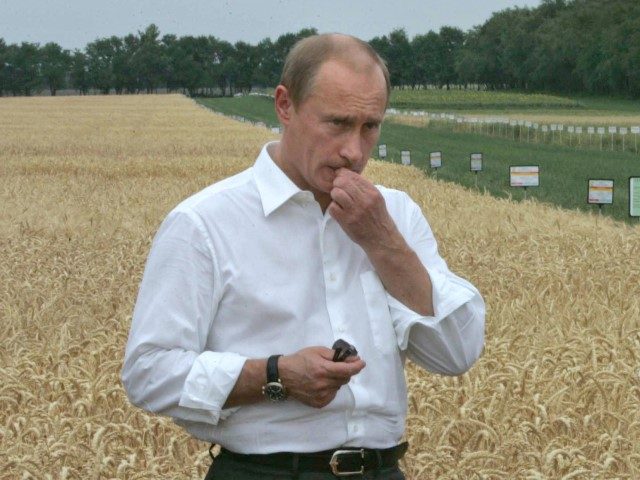China lifted all wheat import restrictions on Russia Thursday, the same day the U.S. and the U.K. announced the imposition of financial sanctions on Moscow in response to its invasion of Ukraine this week.
“Wheat from all of Russia’s producing regions will be cleared for export to China, provided they meet certain requirements,” China’s General Administration of Customs announced on February 24.
Russian wheat exports to China had previously been subject to restrictions due to Beijing’s concern over Moscow’s ability to prevent transmission of an agricultural crop disease known as dwarf bunt.
“China will now accept wheat and barley from all over Russia, up from a previously allowed seven regions which excluded major growing areas,” Russia’s agriculture watchdog, Rosselkhoznadzor, said on February 4 after Moscow and Beijing first negotiated the deal.
“China will no longer restrict trade in the cereals to certain parts of Russia, raising the prospect of Russia being able to send large vessels through the key Black Sea export route,” Reuters reported of the agreement on February 4.
China’s decision to announce the trade agreement’s finalization on February 24 — the same day Russia launched a military invasion of Ukraine — appeared conspicuous to many observers, who noted the action stood in stark contrast to a U.S- and U.K.-led effort to impose financial sanctions on Moscow to punish the Kremlin for its military aggression against Kyiv.
“Though the announcement was made on the same day as Russia’s military operation against Ukraine, it is unrelated to the Russia-Ukraine situation,” China’s state-run Global Times claimed on February 24, citing Chinese political analysts.
China negotiated its latest wheat deal with Russia following an in-person meeting between Chinese leader Xi Jinping and Russian President Vladimir Putin in Beijing on February 4. Russia is the world’s largest wheat supplier and has long sought to expand its wheat market within China, one of the globe’s top wheat buyers.
Moscow and Beijing “are continuing to work on potential trade opportunities,” Rosselkhoznadzor said in a statement on February 4 announcing the wheat deal.
These potential agreements include a plan that would allow Russia to supply peas to China by 2023.
“It may take a while for any significant [wheat] sales to China. There will probably be one or two test deliveries this season,” Eduard Zernin, the head of the Russian Union of Grain Exporters, told Bloomberg on February 4.
“Large-scale deliveries may begin in the 2022-23 season, where we can expect a volume of at least 1 million tons, with the prospect of higher volumes as trade relations develop,” he predicted.
Bilateral trade between Russia and China increased by 26.6 percent year-on-year in 2021 to $150 billion, the Global Times reported on February 24.
“Russian seed oil, barley and beef exports to China surged. Barley exports grew 12 times to 75,000 tons from 2020 levels,” according to the newspaper.

COMMENTS
Please let us know if you're having issues with commenting.